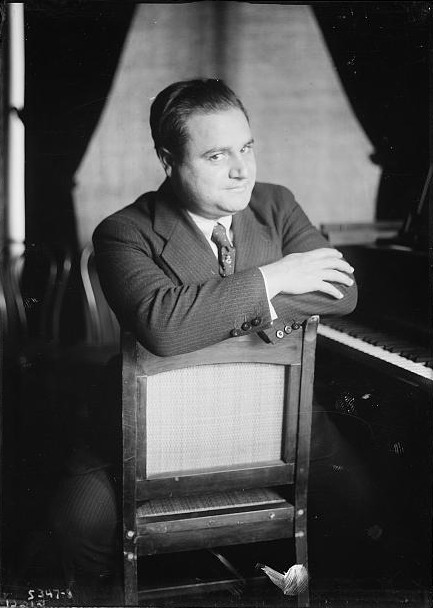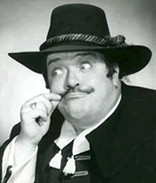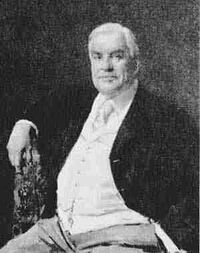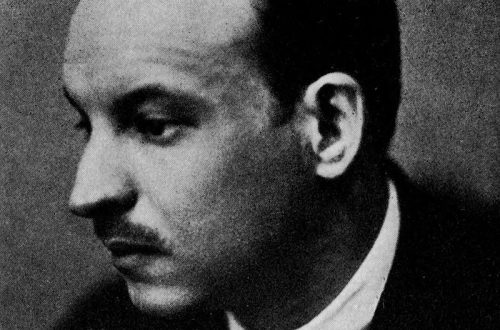
Beniamino Gigli |
Beniamino gigli
Puccini. “Yearning”. “E lucevan le stelle” (Beniamino Gigli)
Unforgettable voice
We invite you to our “bookshelf”. Today we will talk about Beniamino Gigli (1890-1957) and his book “Memoirs” (1957). It was published in Russian in 1964 by the Muzyka publishing house and has long since become a bibliographic rarity. Currently, the music publishing house “Classics-XXI” is preparing to release a new (expanded and supplemented) edition of these memoirs with comments by E. Tsodokov. The book will have a new title, “I didn’t want to live in Caruso’s shadow.” We offer readers an introductory article to this edition.
For almost half a century, Beniamino Gigli, the wonderful tenor, who made the hearts of thousands of people in all corners of the globe, in concert halls, theaters, and radio receivers, passed away. Like Caruso, you can say about him – a legendary singer. What does legendary mean? This is when, at the mere sound of the singer’s name, even people who are very far from art nod their heads in understanding and express admiration (although, perhaps, they never listened to him). But there were other excellent tenors in the time of Gigli – Martinelli, Pertile, Skipa, Lazaro, Til, Lauri-Volpi, Fleta … some music lover or specialist will add to the list of his favorites. Each of them is good in his own way, and in some games he achieved success, perhaps even more than Gigli. But in the list of “legendary”, where such names as Chaliapin, Ruffo, Callas, Del Monaco (Caruso has already been discussed), they are not! What gave Gigli the opportunity to get into this “club of the elite”, this singing Areopagus?
The question is not as simple as it seems. Let’s try to answer it. Actually, there are, as it were, two components to any success story, glory. One is the internal resources of a person, his abilities, character traits; the other – external circumstances that contributed to the achievement of the goal. The goal of the artist is the same – to achieve recognition. And every creator puts it (if not to dissemble), even if subconsciously, because creativity is an instinct for self-expression, while self-expression requires success, understanding on the part of society, or at least its enlightened part.
Let’s start with external circumstances. They favored the singer in his ascent to Olympus. One of them, oddly enough, lies in a certain “lack” of the vocal gift (according to many experts, and among them the famous tenor Lauri-Volpi, whom we will mention later) – the singer’s voice, the manner of sound extraction strongly resemble Karuzov’s. This made it possible for Lauri-Volpi, in his well-known book “Vocal Parallels”, even to enroll Gigli in the list of “epigons” of the great Italian. Let’s not judge strictly a colleague-rival, his partiality is understandable. But after all, the singer himself felt this connection with his predecessor, he especially felt it after the first recording in his life: “It was absolutely unusual to sit silently in an armchair and listen to your own voice. But something else struck me even more – I immediately noticed the amazing similarity of my voice with the one I heard the day before, when they played the record with Caruso’s record. These qualities of the young tenor’s voice attracted and fueled interest in him, and there was also a tragic circumstance: in the prime of life, before reaching fifty, Caruso dies. All vocal lovers are at a loss. Who will take his place – the vacated “niche” must be occupied by someone! Gigli at this time is on the rise, he has just successfully started his career in the same theater “Metropolitan”. Naturally, the eyes turned to him. It must be added here that the mentality of American public opinion, with its “sporty” desire to put everything in its place and determine the best, also played an important role in this matter (well, the fact that the best in the world is certainly among the soloists of “their” theater , it goes without saying).
Another major external factor in the phenomenal success was the rapid development of sound films and radio. Gigli’s spectacular film debut in the 1935 film Forget Me Not (with the song of the same name by Ernesto de Curtis) marked the beginning of a series of films with his participation, which undoubtedly played a crucial role in creating world fame. The singer was also at the forefront of radio broadcasts of operas (1931) – perhaps one of the most successful undertakings of the American cultural industry, which immediately transferred the opera from the category of aristocratic spectacles to a more democratic and mass one.
With all of the above, I absolutely do not want to belittle Gigli’s own merits and talents, which will be discussed now. Just justice requires stating the indisputable fact that no matter what talent, especially in the field of performing arts with its momentary ephemerality of being “here and now”, it is impossible to become a “legend” without additional ways to penetrate the mass consciousness.
Let us pay tribute, finally, to Gigli himself, to his remarkable singing gift. It is very difficult to say anything new in this regard. So many words, so many works. The paradox is that perhaps the best thing about him was the same Lauri-Volpi, who was so strict with him (by the way, in his book on singers, which was already mentioned at the beginning of the article, Gigli is devoted more space than Caruso) . After all, genuine professionalism (which Lauri-Volpi possessed to a large extent) always defeats any prejudice. And here, after discussions about falsetto and “vocal sobs” of the artist, significant confessions follow: “Amazingly beautiful coloring of the notes of the central register, natural sound science, subtle musicality …”, “In “March” and in “La Gioconda” … not a single vocalist surpassed it in the sense of plasticity, beauty and proportionality of the sound line.
Gigli managed to find an ingenious combination between the musically verified and technically flawless performance of the author’s text and that measure of performing liberty and ease that irresistibly affected the listener, creating the effect of “right now and here” of the ongoing act of co-creation between the composer and the singer. Going “towards the listener”, he practically never crossed that dangerous line that separates genuine art, “high simplicity” from trickery and primitive posterity. Perhaps some element of narcissism was present in his singing, but within reasonable limits, this is not such a sin. The artist’s love for what and how he does is transmitted to the public and contributes to the creation of an atmosphere of catharsis.
The musical characterization of Gigli’s singing is also detailed by many. Wonderful legato, caressing sound in mezza voce – all this is known. I will add just one more characteristic: the penetrating power of the sound, which the singer, as it were, “turns on” when it is necessary to dramatically enhance the performance. At the same time, he does not need to resort to forcing, shouting, this is done in some mysterious way, without visible effort, but creates a feeling of tension and sound attack.
A few words must be devoted to the diligence of Gigli. A huge number of performances (even on vacation, when the singer gave charity concerts) is amazing. It also became one of the components of success. To this we must add self-control in understanding one’s capabilities, which is not always typical for singers. On the pages of the book you can read about the singer’s attitude to his repertoire. So, for example, only in 1937 did the artist decide to perform as Radamès (Aida), in 1939 as Manrico (Il Trovatore). In general, his transition from a purely lyrical repertoire to a more dramatic one, or his attitude towards performing (or rather not performing) Rossini’s repertoire can be considered examples of competent self-assessment. However, this does not mean that his repertoire was limited. How many can boast of sixty performed parts (Pavarotti, for example, has less than thirty)? Among the best: Faust (Mephistopheles by Boito), Enzo (La Gioconda by Ponchielli), Lionel (Marta by Flotova), Andre Chenier in Giordano’s opera of the same name, Des Grieux in Puccini’s Manon Lescaut, Cavaradossi in Tosca and many others. other.
It would be wrong not to touch on the topic – Gigli is an actor. Most contemporaries note that dramatic art was a weak point in the singer’s talent. Perhaps this is so. But fortunately, the art of singing, even operatic, is primarily a musical art. And those observations that are possible and inevitable for contemporaries about Gigli’s acting, his stage behavior concern us, the listeners of his recordings, to a lesser extent.
There is no need to present the biography of the singer in this introductory article. Gigli himself does this in some detail in his memoirs. It makes no sense to comment on a number of his subjective remarks regarding vocal art, since the matter is subtle, and everything that can be objected to this will also be subjective.
I am sure that reading these memoirs will bring real pleasure to the reader. He will pass the life of a great master in all its diversity: from a modest provincial childhood in Recanati to brilliant premieres at the Metropolitan, from meetings with simple Italian fishermen to receptions with crowned heads. Undoubted interest will be caused by episodes that were not included in previous editions for ideological reasons – the musical life of Italy during the Second World War and the details of meetings with Hitler, Mussolini and the highest ranks of the Third Reich. The book is completed by fragments from the memoirs of the singer’s daughter, Rina Gigli, published for the first time in Russian.
E. Tsodokov
Studied at the Academy of Santa Cecilia in Rome (1911-1914) under Antonio Cotogni and Enrico Rosati. Winner of the International Singing Competition in Parma (1914). In the same year he made his debut in Rovigo as Enzo (La Gioconda by Ponchielli). At the beginning of his career, he performed in Genoa, Bologna, Palermo, Naples, Rome (“Manon Lescaut”, “Tosca”, “Favorite”). In 1918, at the invitation of Arturo Toscanini, he made his debut at La Scala as Faust (Mephistopheles by Boito). In 1919 he sang with great success at the Colon Theater the part of Gennaro in Donizetti’s Lucrezia Borgia. From 1920 to 1932 he performed at the Metropolitan Opera (he made his debut as Faust in Mephistopheles). Since 1930 he has repeatedly performed at Covent Garden. He performed the part of Radamès in the first season of the Baths of Caracalla festival (1937). In 1940 he performed in Donizetti’s rarely performed Polieuctus (La Scala).
The glory of Gigli brought the performance of lyrical tenor parts. Among the best are Nemorino in L’elisir d’amore, Cavaradossi in Tosca, Andre Chenier in Giordano’s opera of the same name. It was only in the second half of the 1930s that Gigli began to perform in some dramatic roles: Radamès (1937), Manrico (1939). In his book of memoirs, Gigli specifically pointed out that the strict choice of the repertoire, which corresponded to his vocal abilities, led to such a long and successful career, which ended only in 1955. The singer acted in films (“Giuseppe Verdi”, 1938; “Pagliacci”, 1943; “You, my happiness”, “Voice in your heart” and others). Author of memoirs (1943). Recordings include Radamès (conducted by Serafin, EMI), Rudolf (conducted by U. Berrettoni, Nimbus), Turridou (conducted by the author, Nimbus).
E. Allenova





